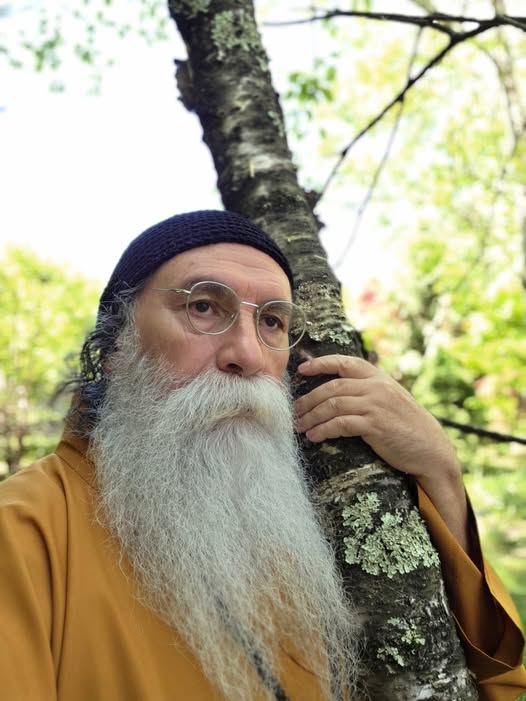“Sometimes I am asked a question that, although understandable, rests on a fundamental misunderstanding: ‘Are you enlightened?’ or ‘Are you an enlightened person?’ The question presupposes that enlightenment is a state that can be possessed by a subject, like someone who obtains a merit or reaches a higher category. However, if we accept the term “enlightenment,” it should be understood not as a personal achievement, but as radical disillusionment. It is not an inner achievement that the “separate self” can display, but the collapse of the very idea of an “autonomous self” that must or can achieve something.
When someone declares themselves enlightened, they have not awakened: they have constructed a new fiction around their ideal image. It is the ego that utters the phrase “I have awakened,” but genuine awakening consists precisely in seeing that this “I” was an illusory structure, sustained by the habit of self-assertion and the fear of dissolution. At the moment of awakening—if such a moment is possible—the urgency to define oneself, to defend oneself, to validate oneself vanishes. What once seemed essential loses all weight, as when at dawn the contours of dreams dissolve and there is no longer any need to flee or hold on. It is not a matter of denying subjective experience or rejecting ordinary forms of identity. It is about understanding that suffering finds its most constant root in the assumption that there is an autonomous, fixed, and central self. Enlightenment, in this sense, is not an extraordinary experience, but a lucid perception of what has always been so. It does not burst in with fanfare. It arrives without an owner, without an argument, without affirmation.
When that structure falls, an idealized version of oneself does not emerge. The real appears, in its elemental nakedness. Air, light, and minimal gestures appear, without the need to attribute transcendent meaning to them. The one who has awakened is not the one who accumulates answers. It is the one who no longer needs to hide behind justifications. Language ceases to be a shield. It becomes seeing silence.
The question is not who has awakened, but how much illusion remains to be let go. To seek enlightenment as a form of exceptionality is to remain trapped in the logic of the self. Awakening, if it occurs, does not confer superiority. It frees one from the suffering that arises from identifying with an image that was never stable. No one awakens to become something different. One awakens to stop fearing what one is when one has stopped pretending.
Like bamboo, which does not know it is hollow, but allows the wind to pass through. Like the mountain, which does not know it is high, but transforms with its presence. So too, consciousness does not need to proclaim itself enlightened. It is enough that it stops casting a shadow.
Rūmī, in his luminous poetry, whispers it with the sweetness of one who has seen:
“Come out of yourself, as water comes out of a spring. What you seek, you already are.”
The essential is not in achieving something. Nothing needs to be added to what already is. There is no further state to which we must ascend. What we are does not need to be perfected: it only needs to be remembered. When the representation of a self that acts to assert itself ceases, there is no superior individual left. What remains is life, as it is: open, silent, irreducible.
And that, without embellishment, is enough.”
Prabhuji




